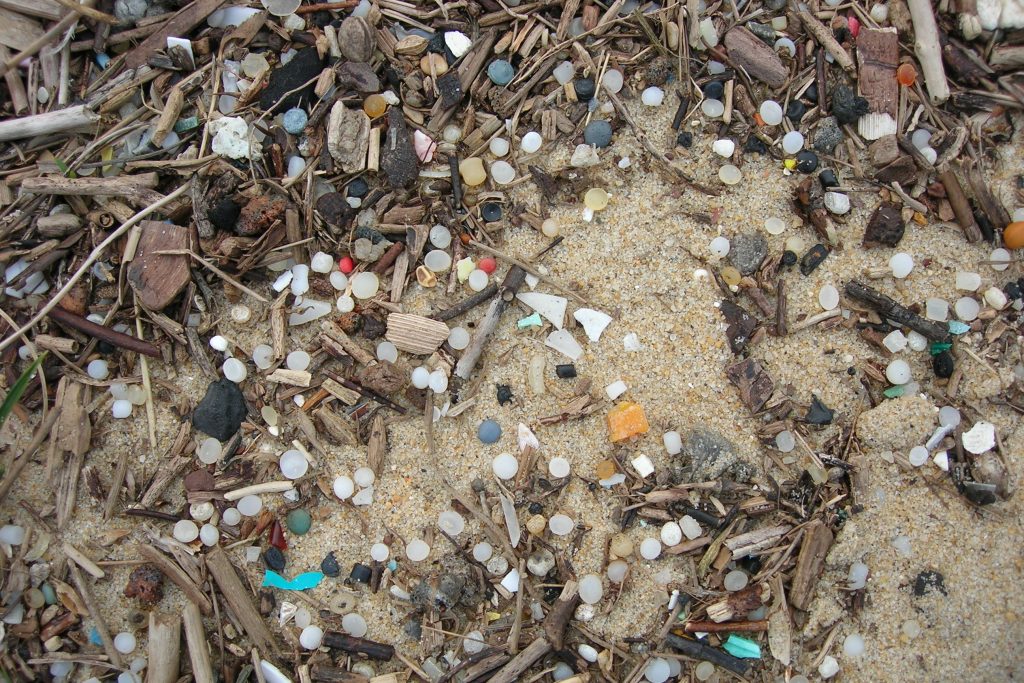 Phthalates are ubiquitous, carcinogenic estrogenic chemicals that contaminate food, indoor air, soil, sediment and drinking water. They are added to plastics to make them soft, to polyvinyl chloride (PVC) products to impart flexibility and durability, to cosmetics and conditioner to make them sticky, and are used in children’s toys, food containers and wraps, and medical devices, including IV bags and tubing. They are present as micropollutants in many rivers and contaminate drinking water. The ozone/UV process efficiently eliminates them from water sources. Some of the phthalates contribute to breast cancer risk by inhibiting an enzyme called sulfotransferase, which prevents inactivation of estrogen, particularly in the liver, by a detoxification process called sulfation. Estrogen levels may be higher when we are exposed to phthalates present in food containers, water and juice bottles, cosmetics and drinking water. Phthalates mimic estrogen and are capable of binding to the estrogen receptor, and in so doing, they interfere with the effectiveness of Tamoxifen in prevention of breast cancer recurrence. Therefore, it is prudent to avoid plastic containers for food and drink, to use toys made from wood, paper or cloth or metal and to research cosmetic ingredients and use only brands that are phthalate-free.
Phthalates are ubiquitous, carcinogenic estrogenic chemicals that contaminate food, indoor air, soil, sediment and drinking water. They are added to plastics to make them soft, to polyvinyl chloride (PVC) products to impart flexibility and durability, to cosmetics and conditioner to make them sticky, and are used in children’s toys, food containers and wraps, and medical devices, including IV bags and tubing. They are present as micropollutants in many rivers and contaminate drinking water. The ozone/UV process efficiently eliminates them from water sources. Some of the phthalates contribute to breast cancer risk by inhibiting an enzyme called sulfotransferase, which prevents inactivation of estrogen, particularly in the liver, by a detoxification process called sulfation. Estrogen levels may be higher when we are exposed to phthalates present in food containers, water and juice bottles, cosmetics and drinking water. Phthalates mimic estrogen and are capable of binding to the estrogen receptor, and in so doing, they interfere with the effectiveness of Tamoxifen in prevention of breast cancer recurrence. Therefore, it is prudent to avoid plastic containers for food and drink, to use toys made from wood, paper or cloth or metal and to research cosmetic ingredients and use only brands that are phthalate-free.
- Xenoestrogens modulate vascular endothelial growth factor secretion in breast cancer cells through an estrogen receptor-dependent mechanism.
- Phytoestrogens and xenoestrogens: the contribution of diet and environment to endocrine disruption.
- Application of ozone, UV and ozone/UV processes to reduce diethyl phthalate and its estrogenic activity.
- NA methylation of estrogen receptor alpha gene by phthalates.
- Conflict of estrogenic activity by various phthalates between in vitro and in vivo models related to the expression of Calbindin-D9k.
- Mono(2-ethylhexyl)phthalate and mono-n-butyl phthalate activation of peroxisome proliferator activated-receptors alpha and gamma in breast.
- Phthalates inhibit tamoxifen-induced apoptosis in MCF-7 human breast cancer cells.



